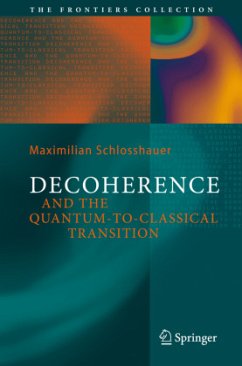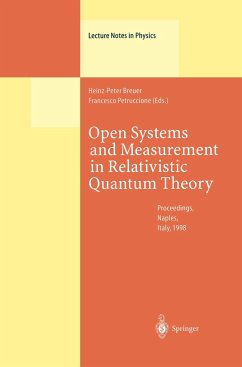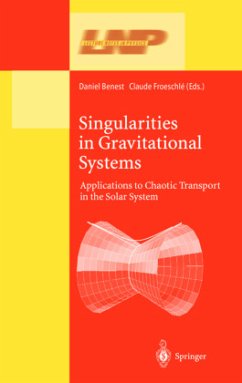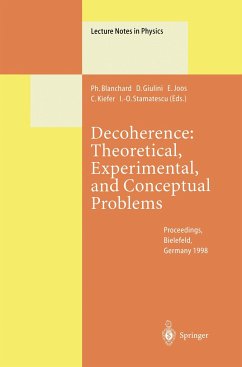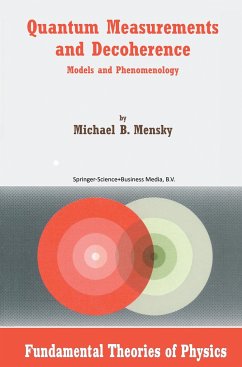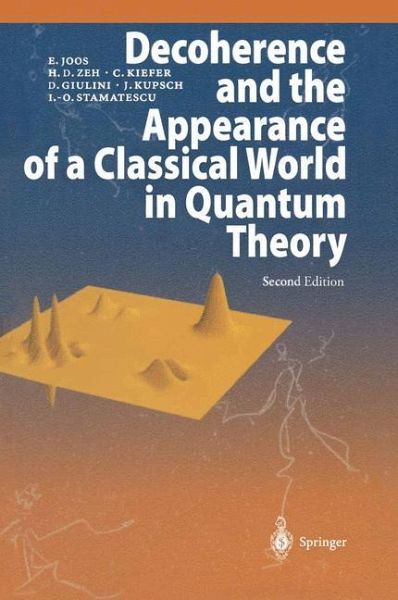
Decoherence and the Appearance of a Classical World in Quantum Theory
Versandkostenfrei!
Versandfertig in 6-10 Tagen
113,99 €
inkl. MwSt.
Weitere Ausgaben:

PAYBACK Punkte
57 °P sammeln!
A unique description of the phenomena that arise from the interaction between quantum systems and their environment. Because of the novel character of the approach discussed, the book addresses scientists from all fields of physics and related disciplines as well as students of physics.
When we were preparing the first edition of this book, the concept of de coherence was known only to a minority of physicists. In the meantime, a wealth of contributions has appeared in the literature - important ones as well as serious misunderstandings. The phenomenon itself is now experimen tally clearly established and theoretically well understood in principle. New fields of application, discussed in the revised book, are chaos theory, informa tion theory, quantum computers, neuroscience, primordial cosmology, some aspects of black holes and strings, and others. While the first edition arose from regular discussions between the authors, thus leading to a clear" entanglement" of their otherwise quite different chap ters, the latter have thereafter evolved more or less independently. While this may broaden the book's scope as far as applications and methods are con cerned, it may also appear confusing to the reader wherever basic assumptions and intentions differ (as they do).For this reason we have rearranged the or der of the authors: they now appear in the same order as the chapters, such that those most closely related to the "early" and most ambitious concept of decoherence are listed first. The first three authors (Joos, Zeh, Kiefer) agree with one another that decoherence (in contradistinction to the Copen hagen interpretation) allows one to eliminate primary classical concepts, thus neither relying on an axiomatic concept of observables nor on a probability interpretation of the wave function in terms of classical concepts.





